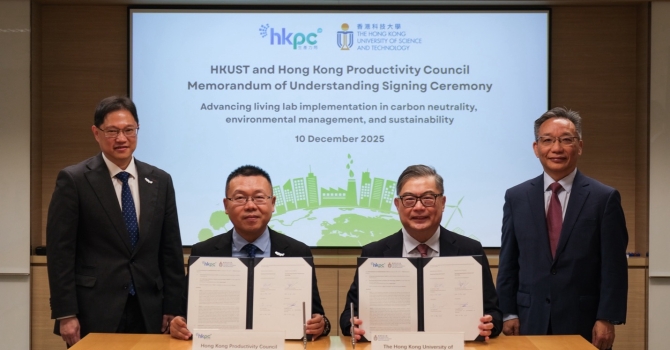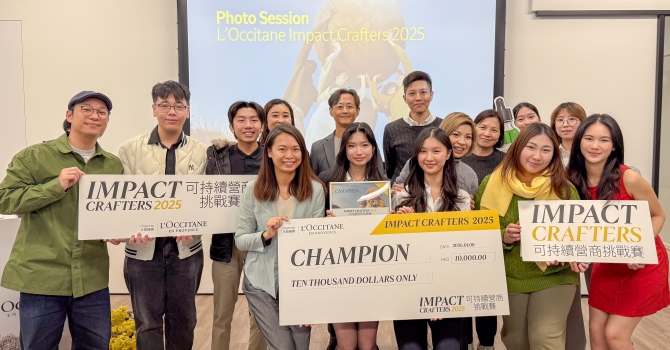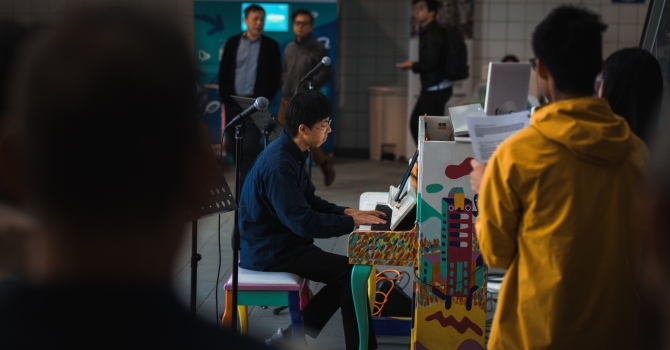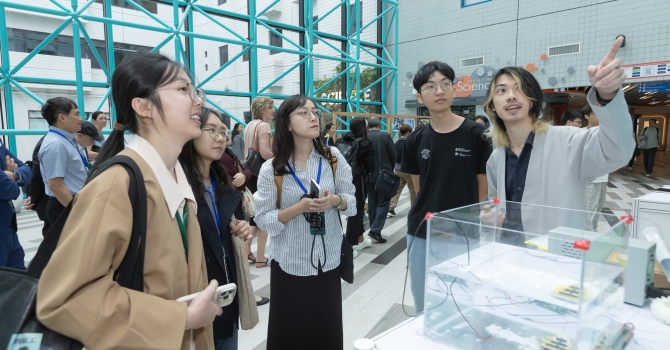Begins with Lunchboxes, HKUST to Envision An Eco-sustainable Campus Dining Experience
November marked the near end of Phase II of the Zero Plastic Takeaway Container Pilot Program. As a joint effort between HKUST Connect, the Sustainability/Net-Zero Office, the Campus Management Office, and the Campus Services Office, the initiative aimed to prepare campus members for the implementation of the Government’s Product Eco-responsibility (Amendment) Bill, encouraging students and staff to instill 'plastic-free' habits in dining.
“What we find is that there is a lot of waste going into the landfill that is single-use… And whenever we are throwing something away in a circular economy, it’s [essentially] trying to find how we use the resource multiple times,” said Professor Davis Bookhart, Director of the Hong Kong University of Science and Technology Sustainability/Net-Zero Office and Chair of the JCSCCP Steering Committee.
“The waste container has been one of our high priorities. We realize there have been a number of different ways we can try to reduce them.”
“The first way is to eliminate them all together [single-use takeaway containers]. So we encourage people to bring their own containers, or to eat in the restaurant, that’s the best... The second is that, if we’re going to have the containers, make sure they are reusable, so that’s what the [borrow] machine is for… The absolute last resort is to use a container that is biodegradable, that is better than a plastic container.”
Introducing the plant fiber-made takeaway food containers
Take a look at the Ecoinno food containers crafted from green composite material cellulose as shown in the pictures. These containers are designed to be decomposed completely in 75 days. More information can be read at HKUST Connect website.
The overarching practice is to enable returned containers to be shredded and combined with food waste, so that instead of ending up in the landfills, they could contribute as landscaping compost on campus or to be sent to their second home, Organic Resources Recovery Centre (O-Park) to generate clean energy and natural compost.
Fostering partnerships with catering outlets
Following the success of Phase I where over 20,000 plastic disposables were saved, Phase II called for wider support from caterers to further reduce waste sending to the landfills.
The eco-responsible takeaway food containers developed by ecoinno® were introduced in the following outlets, including Asia Pacific Catering (LG7), Can.teen II (LG1), China Garden (G/F), LSK Diners, and Golden Rice Bowl (LG7).
Upon returning the containers, users can conveniently scrap the food waste to the destinated bin and dispose the lunchbox into the wooden-made collection bin.
Towards a common sustainable goal shared by 8 local universities
In September 2023, the Lunchbox Lending Programme was introduced to the eight public-funded universities by the Jockey Club Sustainable Campus Consumer Programme (JCSCCP) as a permanent initiative.
This program is the first of its kind within the Asia Pacific region that showcases the complete life-cycle of takeaway container recycling on campus. As of 21 November 2023, the number of containers borrowed were 5,709 with a return rate of 89% across 8 universities.
How the recycling works for the blue-green lunchboxes
The borrow and return process is automated by the vending machines. Simply select a container from the Borrow machine outside the LG1 catering outlet or Passion restaurant. Then, tap the Octopus card to pay the HKD20 deposit to grab your lunchbox.
After using the container, you can bring it to Atrium or outside Passion restaurant.
Don’t forget to remove the food waste from the container to the food waste bin. Then, tap the Octopus card on the Return machine and place the food container in the tunnel, press “OK”. Retap again to receive the HKD20 refund.
Damaged containers are also accepted. They can be returned in the same way.
What can be expected in the future
“The biodegradable [takeaway container pilot program] was a scheme we are trying out so that the caterers can get used to the plastic alternatives [before the rollout of the single-use plastic ban in 2024].”
Whereas the JCSCCP Lunch Lending Program will become a permanent fixture in the university. As the next step, the program will link up with Carbon Wallet (CW), which for every container borrowed, users will be awarded with points to redeem green rewards on the CW platform.
Kind to the environment, kind to your wallet!
“One of the keys for understanding the sustainability systems thinking, is you have to understand everything we do impacts something else,” Professor Bookhart shared. “We often try to fix that one problem but we don’t realize it’s actually creating a whole other problem.”
“That’s what in sustainability, we have to always be aware that if you are fixing the problem, don't just shift that problem to somewhere else.”
Let’s embrace a plastic-free campus by opting for eco-responsible takeaway food containers. Your small action can contribute to the grand scheme of our sustainability vision.



